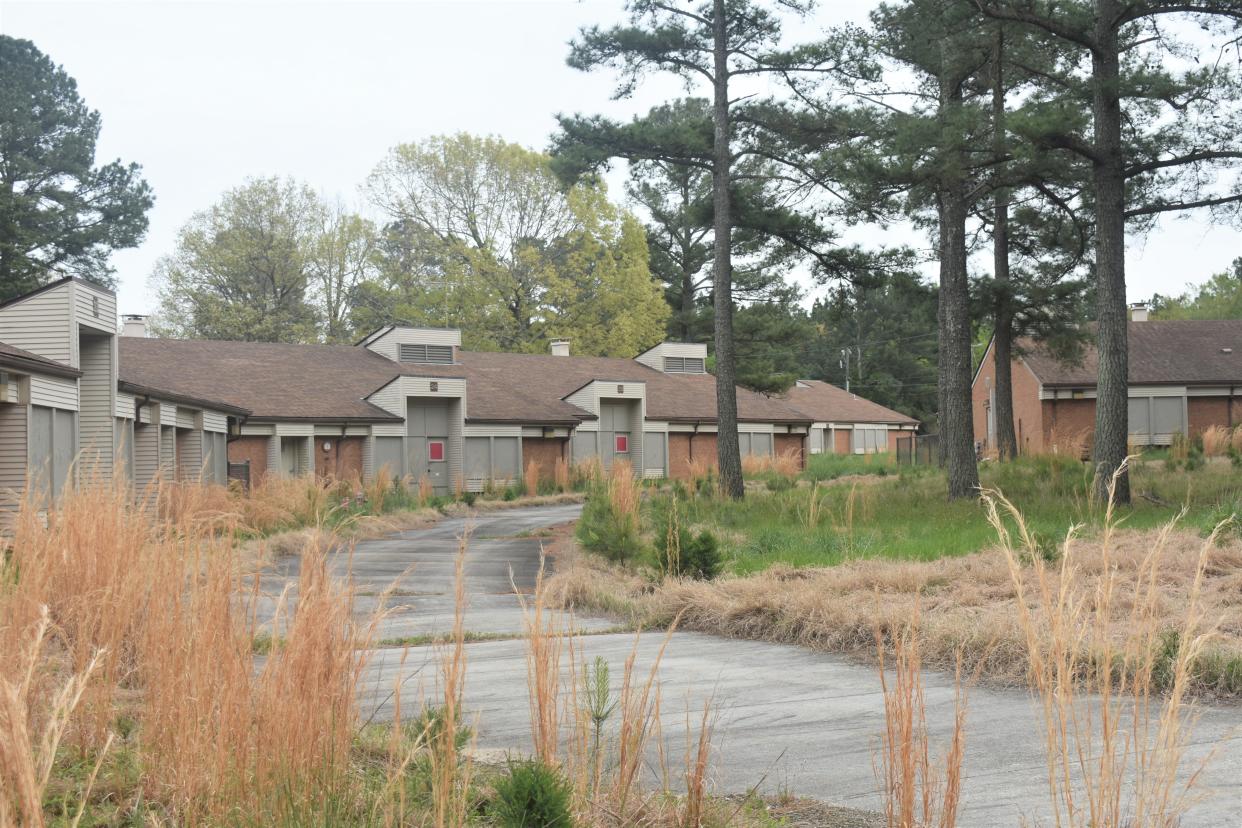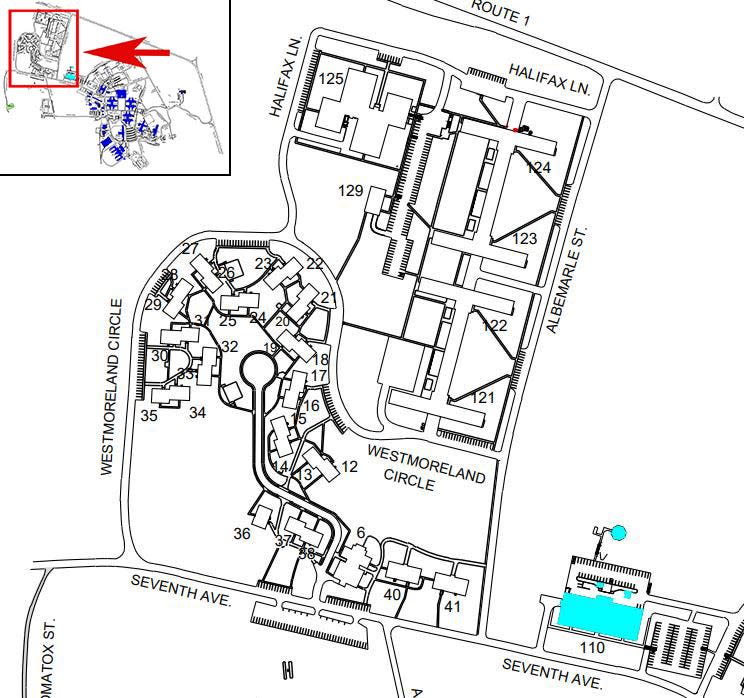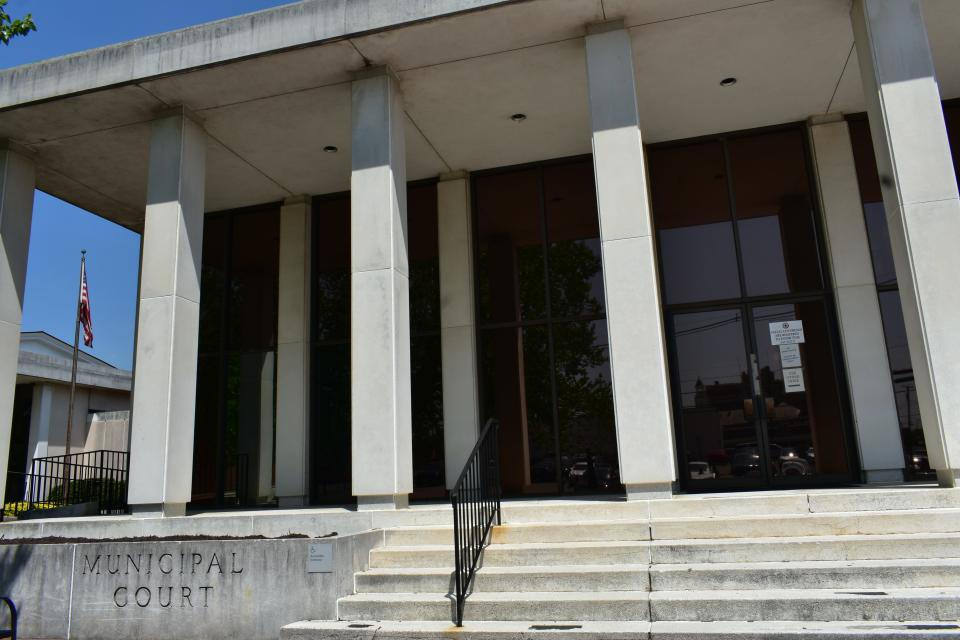Petersburg wants to use vacant housing at an abandoned mental health facility for the homeless

PETERSBURG — A city council idea to address evictions and homelessness could have new life with another push from the councilor who first put it together. The concept would address both Petersburg's high number of evictions and lack of housing for the city’s homeless.
Ward 1 Councilor Treska Wilson-Smith introduced the idea she calls “The Humanities Bill” shortly after she was first elected in 2010. It has failed to pick up any support from her council colleagues in that time. She reintroduced the idea recently, and Petersburg says it is now seeking support from the state for a portion of the plan.
It has two pieces that are related, but not dependent on each other.
One part calls for the use of dozens of vacant living units at Central State Hospital to house people who are homeless around the region. The second piece of that plan would give case manager more power to assist people who are going through the evictions process, with the aim of keeping them in their current housing.
In Petersburg, a large number of people turn to its motels as a long-term living solution. These motels have become a haven for people with nowhere else to go. Advocates for the homeless have also used those motels to house people who come to them for help, but they say they don’t have the resources to help everyone. Compounding the issue is the fact that Petersburg has also been without a homeless shelter since the old Salvation Army shelter closed in 2017 and efforts to reopen it were snubbed by the city.
More: Virginia tenants facing increased evictions as end to COVID-related protections nears
More: For nearly two years, the city thwarted efforts to open a shelter
The best available numbers for unsheltered people have remained somewhat low throughout the region at around 90, though advocates admit it's likely those figures are severely undercounted. These numbers are tabulated through a “point-in-time" count which counts the number of homeless people visible in a particular area on one specific night.
Hundreds of vacant beds at Central State Hospital
Wilson-Smith wants to use about 30 vacant buildings on the state-owned campus of Central State Hospital to house homeless people from around the region.
These buildings were formerly used by the Southside Virginia Technical Center to care for people with intellectual disabilities. SVTC was later closed in 2014 after a settlement agreement between Virginia and the U.S. Department of Justice which argued for a shift to community-based care, versus institutionalized care. The facilities have been empty ever since. These buildings are adjacent to Central State Hospital.
More: An era ends with closing of Southside Virginia Training Center
Wilson-Smith previously worked at SVCT and is familiar with its buildings. She has shown the property to several city leaders over the past decade hoping to use it for the homeless. By her estimate, there are roughly 244 beds across two of the buildings.
She thinks one area could be used to house families with children, another for individuals who are homeless.
The SVTC buildings include 29 “cottages” which Wilson-Smith has proposed using to house families without a place to live. Each cottage has between three and four bedrooms with built-in dressers and mirrors. Each unit has a living room, kitchen with refrigerator, microwave, and two full bathrooms with a double sink, bathtub and shower. Cottages also have an extra room and a front or back yard. Though now in disrepair, the are also has some public amenities like a basketball court.

In addition to the cottages, there is a single four-winged building called Building 125. Wilson-Smith thinks it could be used to house single people who are homeless. Each of the sections in building 125 has a full kitchen, bathrooms, showers and other necessary amenities.
Both of these areas are also on the city’s bus line.
Currently these facilities are still owned by the state. Mayor Sam Parham said at a city council meeting that Petersburg is hoping to get state support. Wilson-Smith said she was hoping the state might consider leasing the building for $1.
The housing effort is being proposed as a regional effort, to include Colonial Heights, Dinwiddie, Emporia, Greensville, Hopewell, Petersburg, Prince George, Surry and Sussex. Each locality would share in the cost to operate the facility and the beds would be divided based on the need from each.
Prevent evictions with court-based case managers
Wilson-Smith also wants to have dedicated case managers at evictions court proceedings to help the families that are being evicted.
A study from researchers at Harvard University and Rice University in 2015 said that evictions often have sweeping mental and material affects on low-income single mothers, and that those negative affects can persist for years after the eviction. Another study found that evictions drastically increase the possibility that people in New York City would become homeless, and exacerbate possible mental health issues.
The Princeton Eviction Lab found in 2016 that Petersburg had the second highest number of evictions across the country among midsized cities. From November 2021 to January 2022 there were 318 evictions suits brought against city residents. Landlords won 117 of those cases.

Wilson-Smith says that being proactive is the best way to help with Petersburg's eviction struggles.
"The bottom line, if you don’t go to social services for help, social services doesn’t come to you," Wilson-Smith said. "I thought people in this world need help and we’re sitting around waiting for them to come to the office. We don’t make getting help easy."
This second component of her plan to address housing would put a case manager into the courts who would help families going through the evictions process. Nearly every defendant in Petersburg's 117 evictions cases went to court without the help of a lawyer.
"The tenant does not go into court feeling alone. This gives them some help. Somebody to talk to and work with them." Wilson-Smith said.
After an eviction notice has been issued, a tenant has 30 days to comply with their lease terms. A case manager's help becomes critical during that time.
She says that case manager can act as a mediator, creating a better understanding of the barriers people have towards paying their rent, and coming up with a plan that could satisfy landlord to keep tenants in their housing.
A section of the proposal reads:
"There are many things that could be going on in the household that is prohibiting the family from making their payments. It could be drugs and if so, should the child be there? It could be that grandma gets a monthly pension and someone else is taking that. It could be that the mother lost her husband over 3 months ago and fell into such a depression that she could not concentrate on doing anything. The children might have to be removed from the home for a while."
"There are a lot of problems that social services could assist with but, usually does not know exist. This bill gives them access to find out what is going on."
Case managers would be tasked with investigating the underlying reasons a tenant can't pay their rent and align them with resources, either through community nonprofits or the department of social services.
Should a person or family be evicted anyway, the case manager would be working to help find a new place for them to live and ease the troubles with being evicted.
Wilson-Smith says the program would initially fund one or two case managers. Based on current evictions numbers, it is likely that more case workers would be needed. Wilson-Smith said she hopes the program could be proved successful and ultimately grow.
The Humanities Bill would also establish court dockets specifically for evictions cases, similar to drug courts. Petersburg has talked about sending this to the General Assembly in 2023 for an amendment to the city code.
Wilson-Smith's bill was initially tabled in March 2022 for further discussion. Mayor Sam Parham invited Wilson-Smith to further explain her plan at a a city meeting on April 19, saying that the city would need support from the state for the SVTC portion of the plan.
You can reach Sean Jones at sjones@progress-index.com. Follow him at @SeanJones_PI. Follow The Progress-Index on Twitter at @ProgressIndex.
This article originally appeared on The Progress-Index: 'Humanities Bill' targets evictions and homelessness in Petersburg

